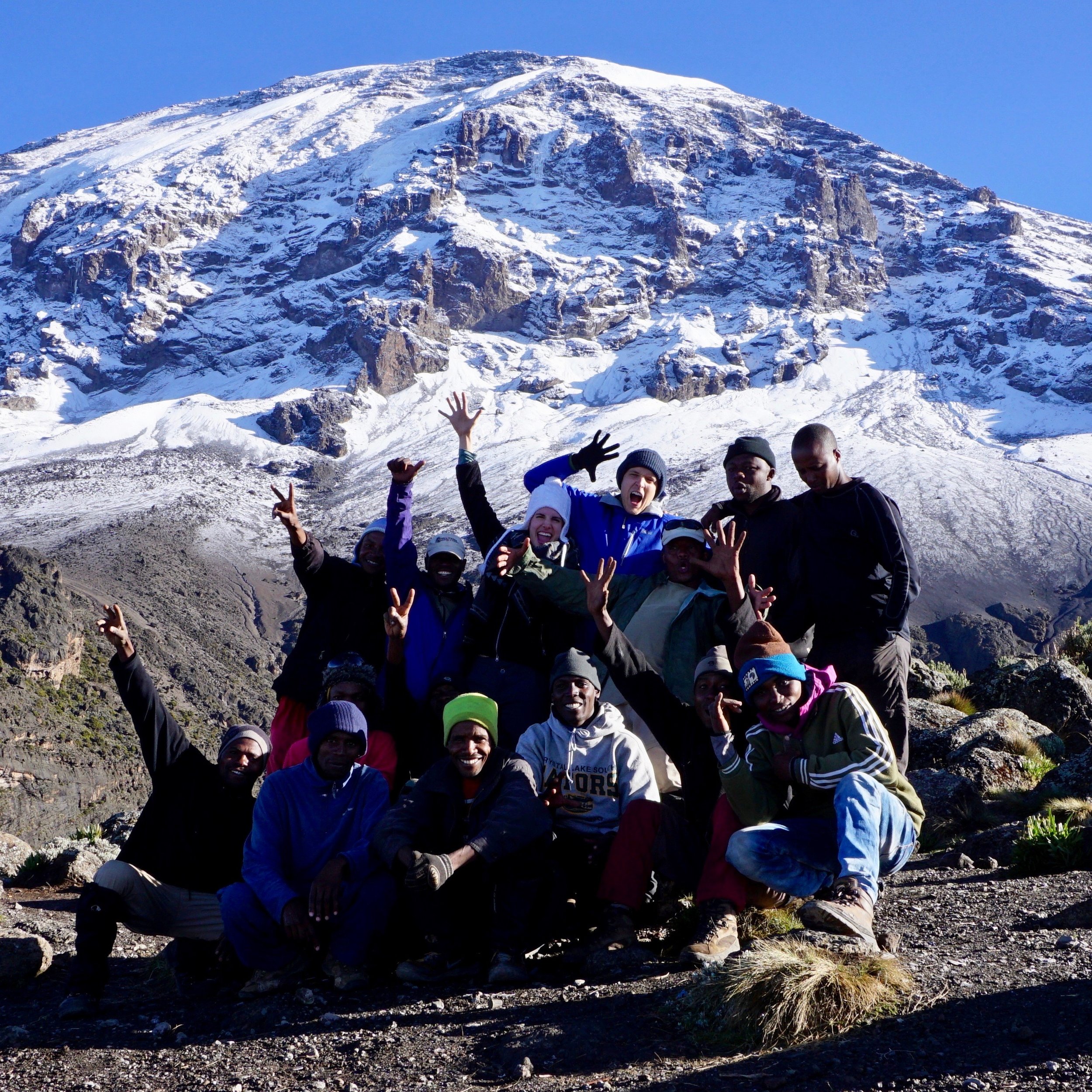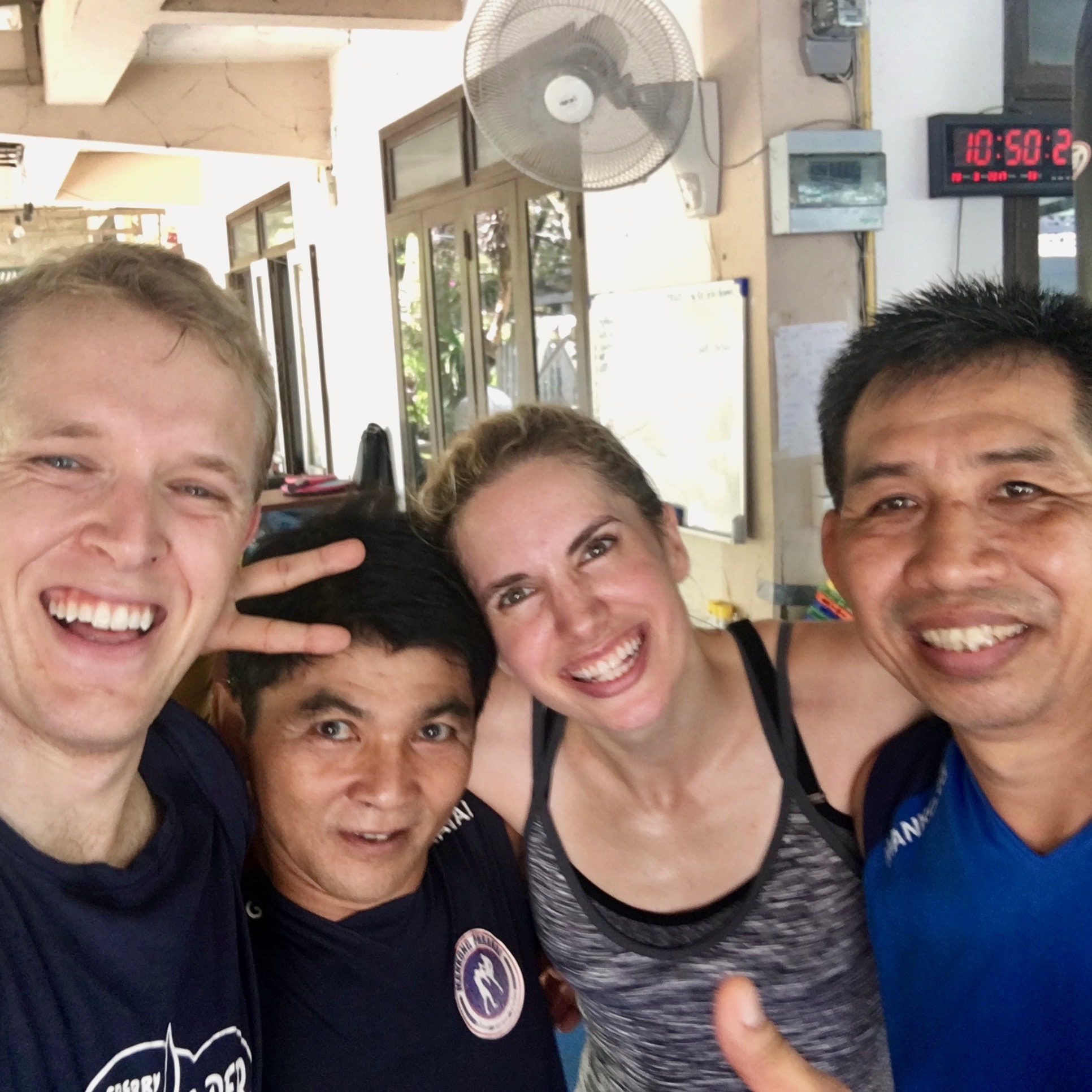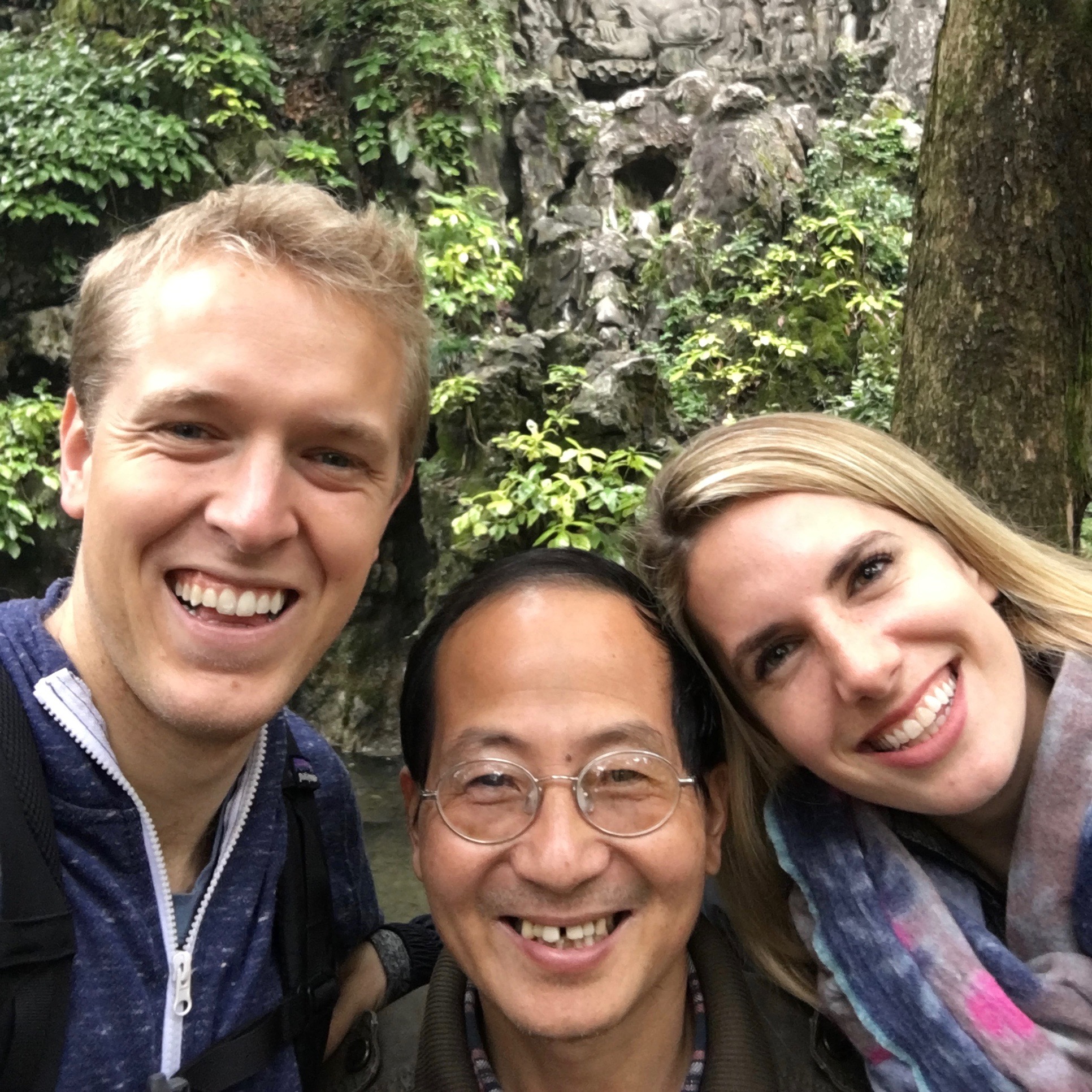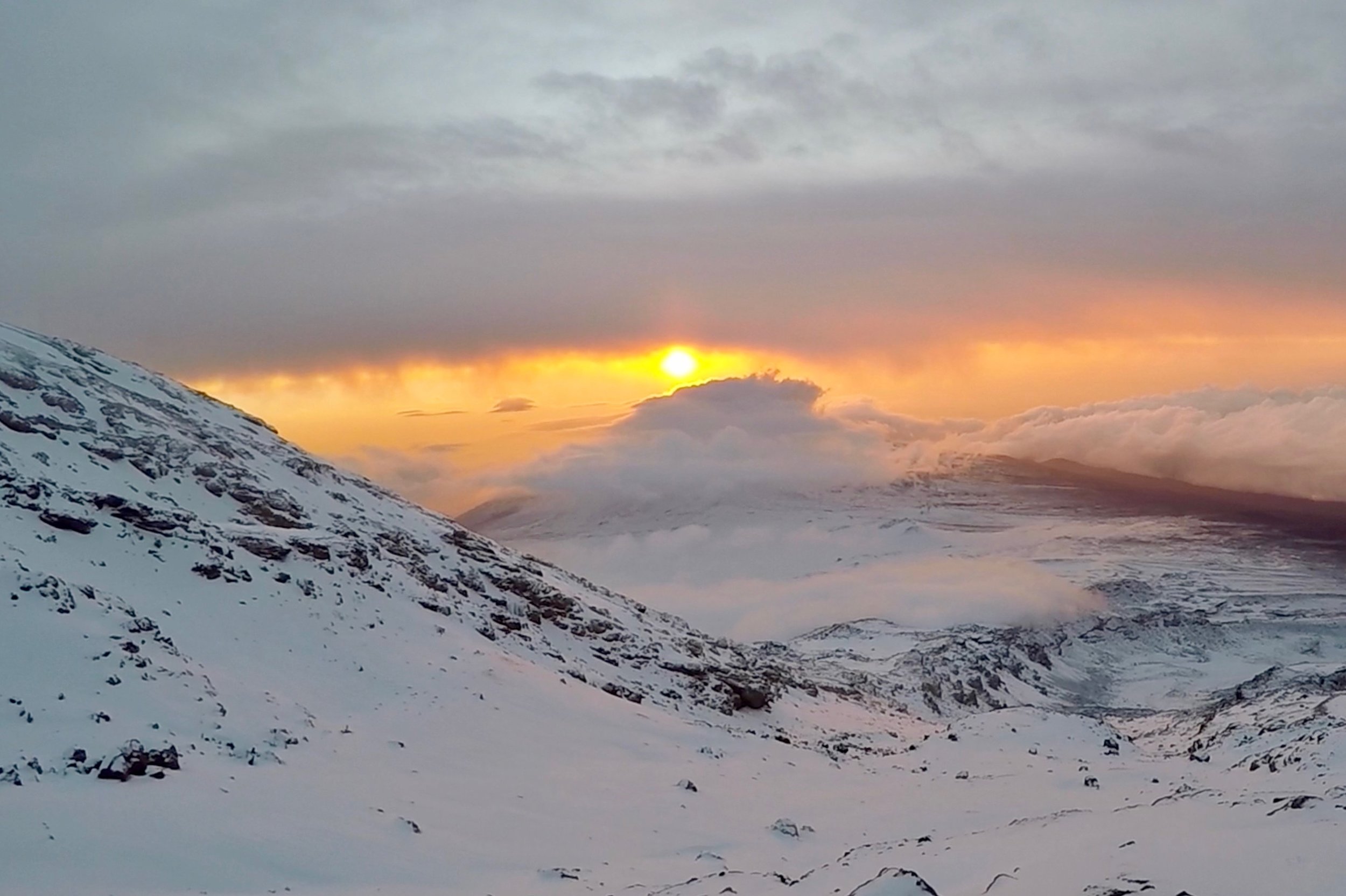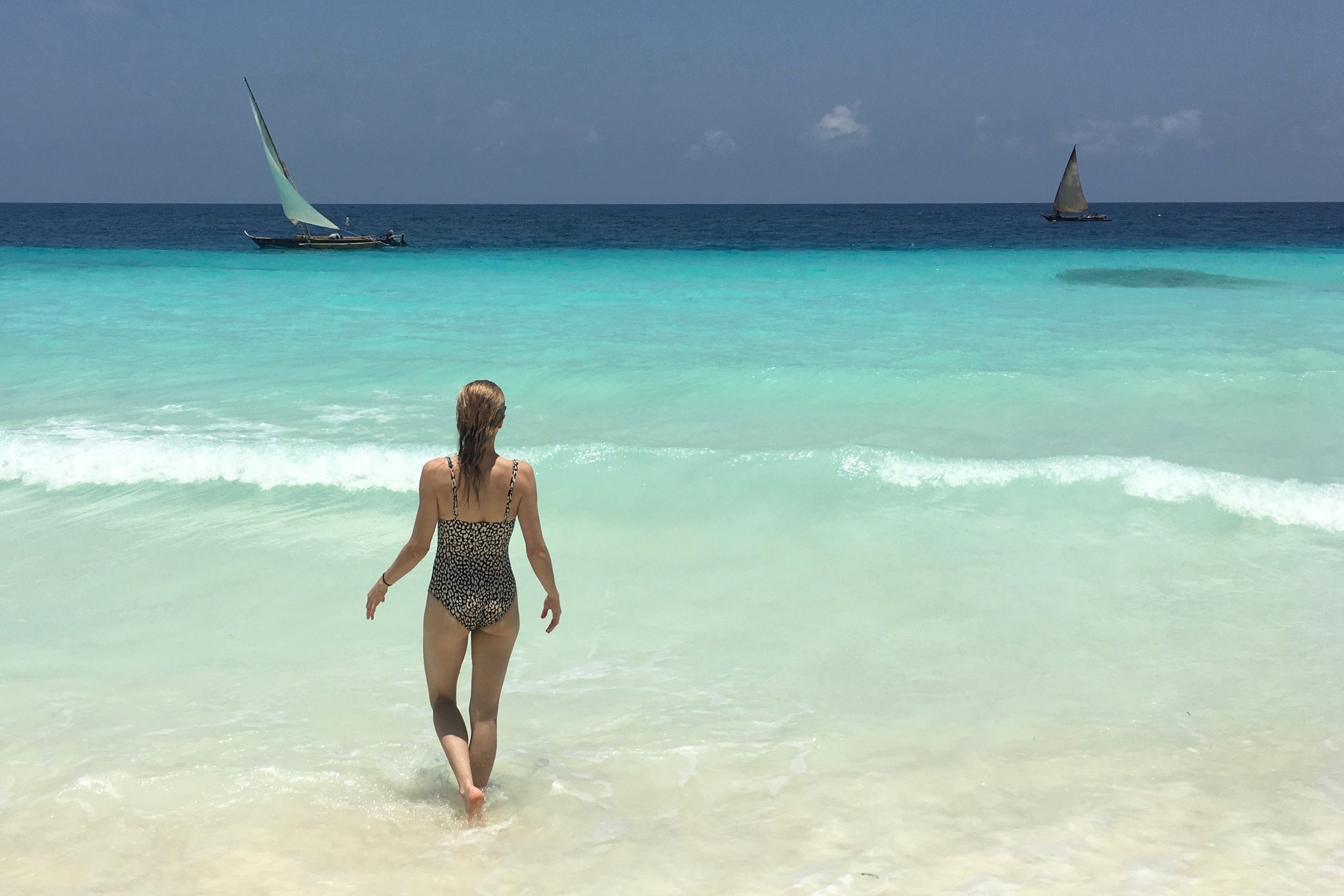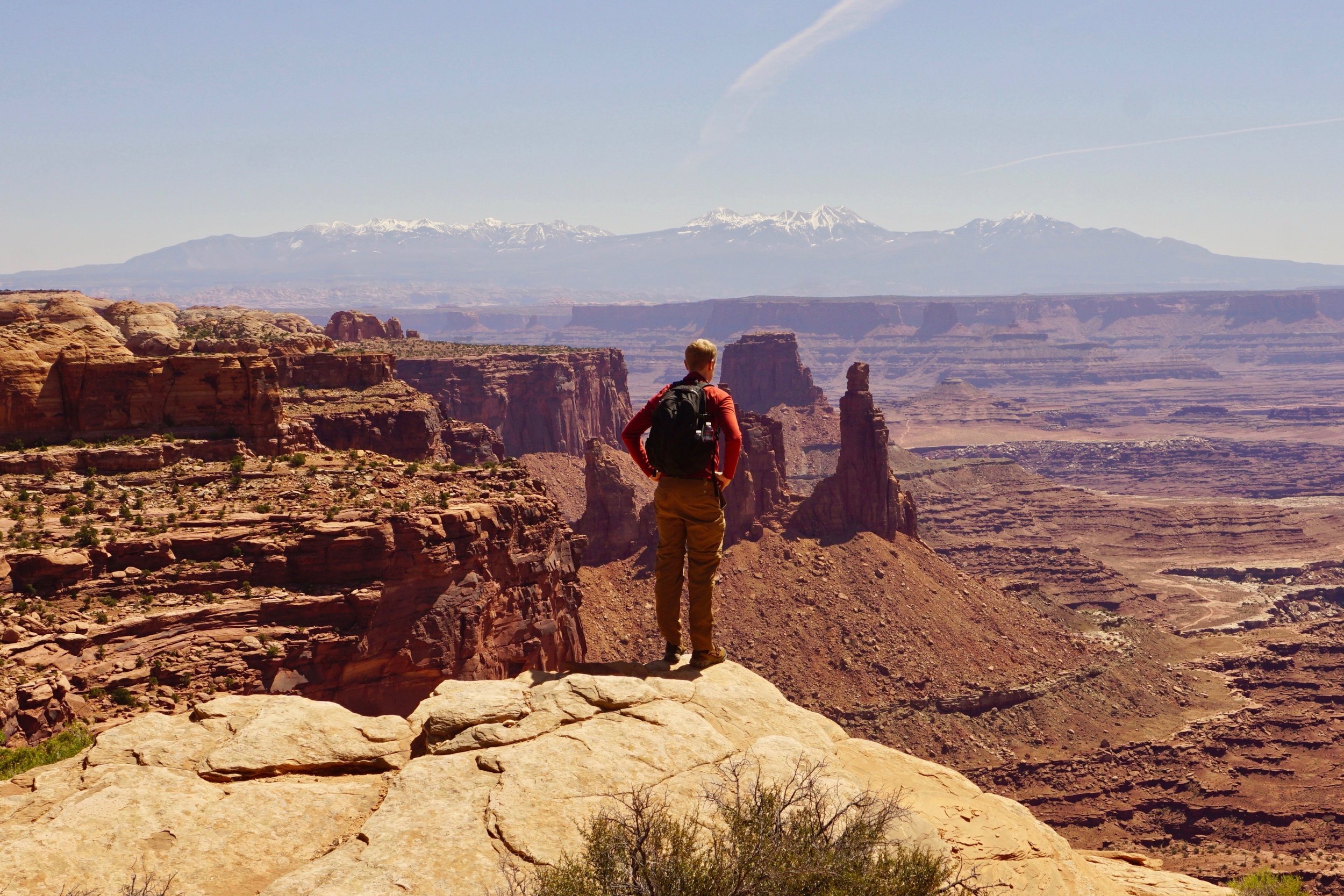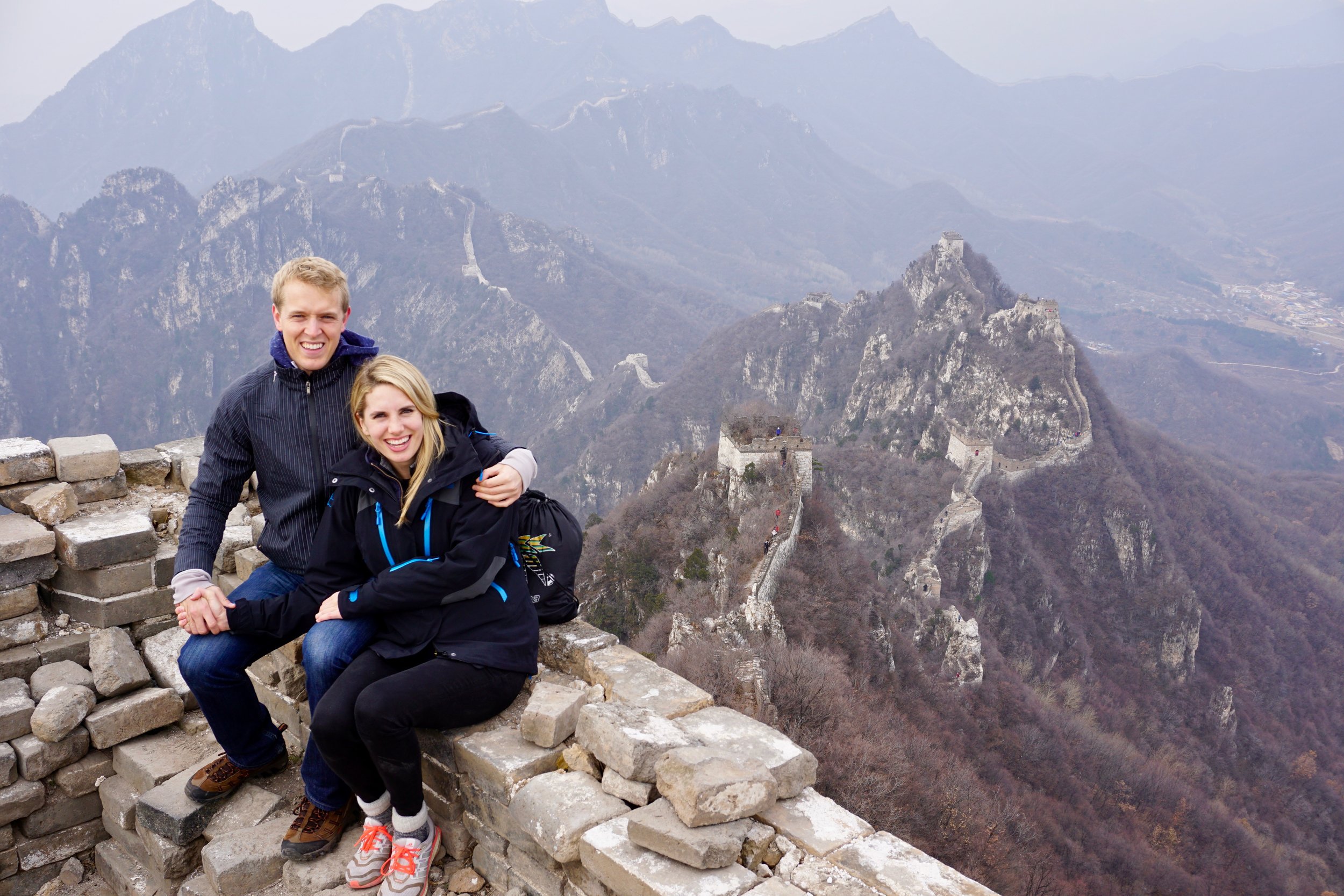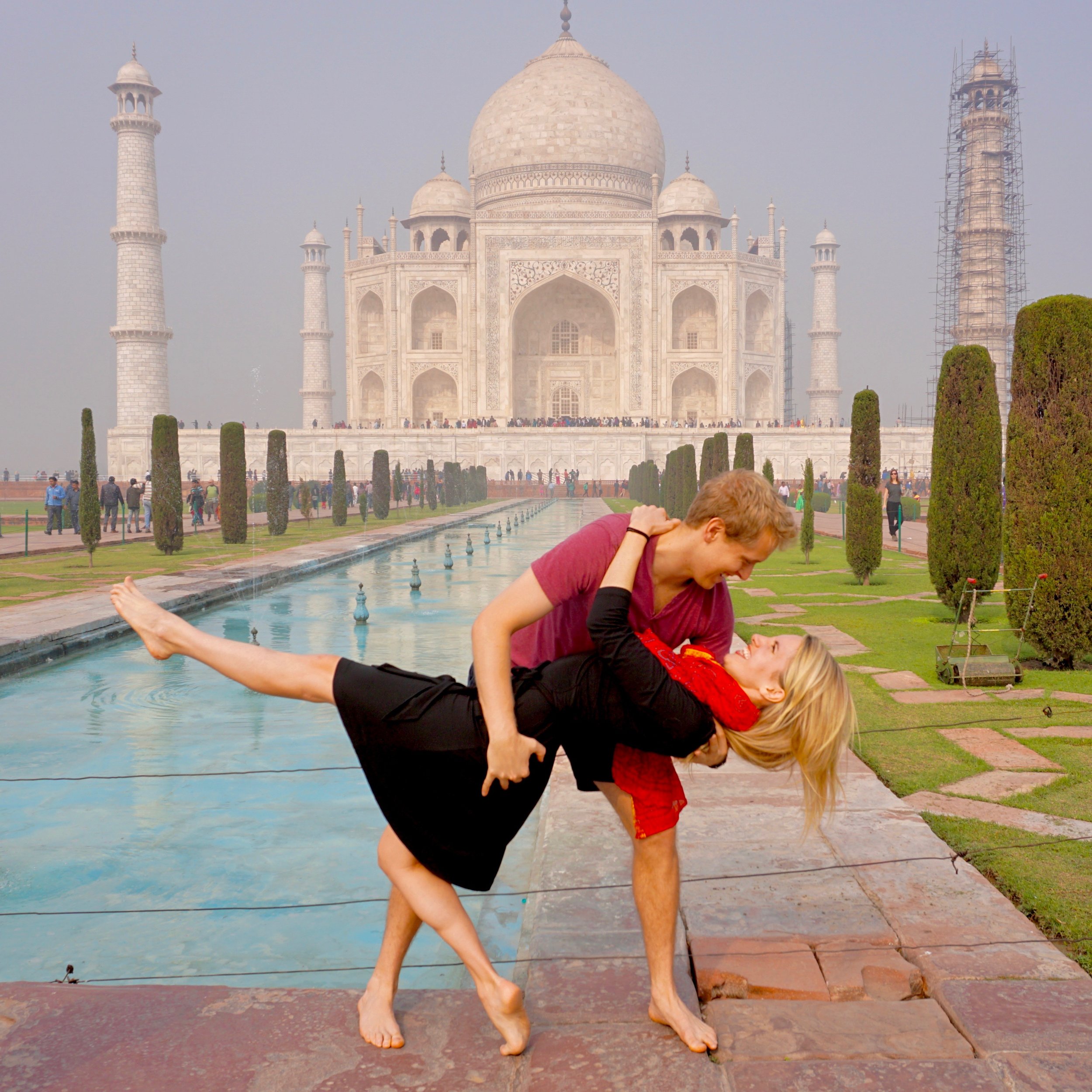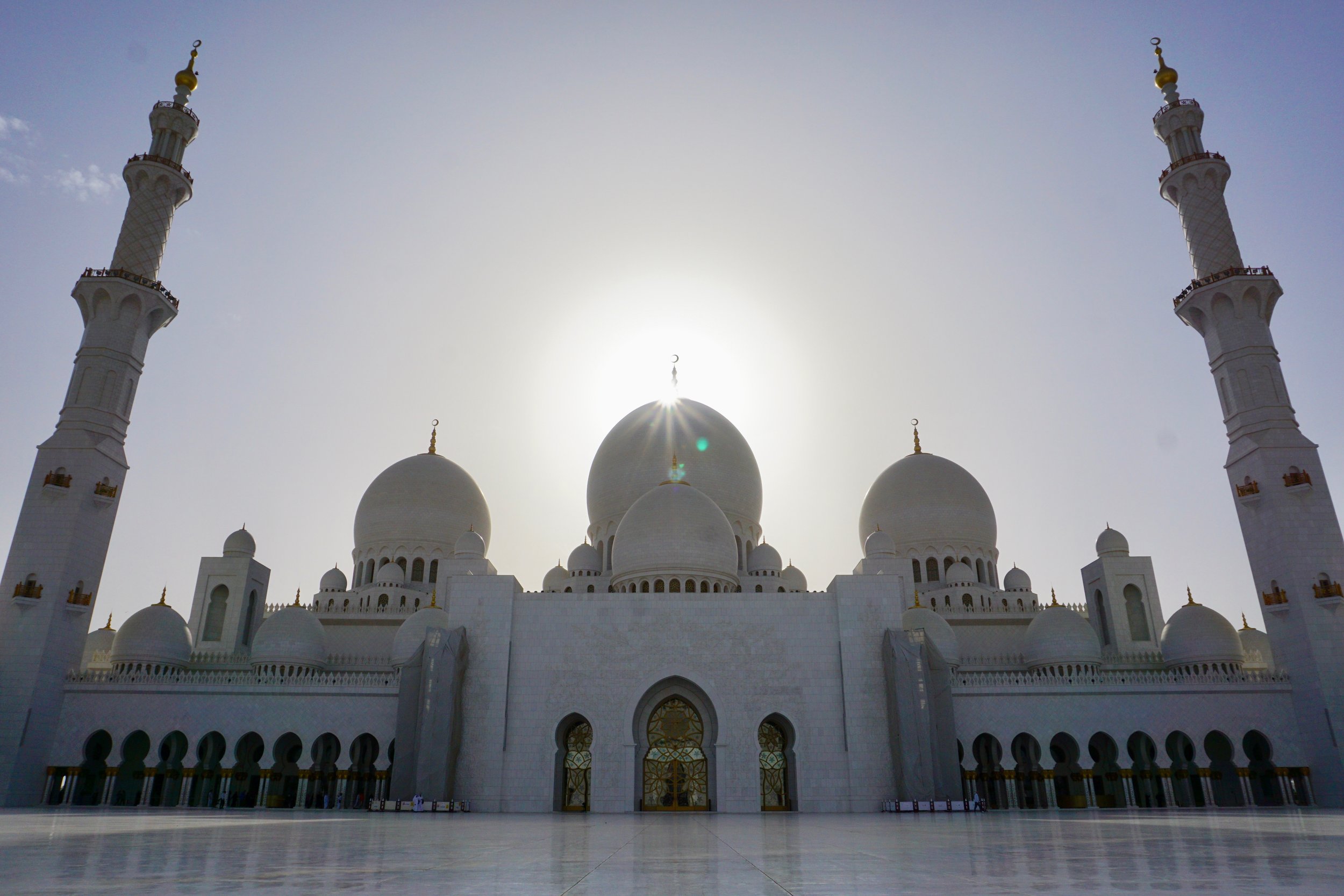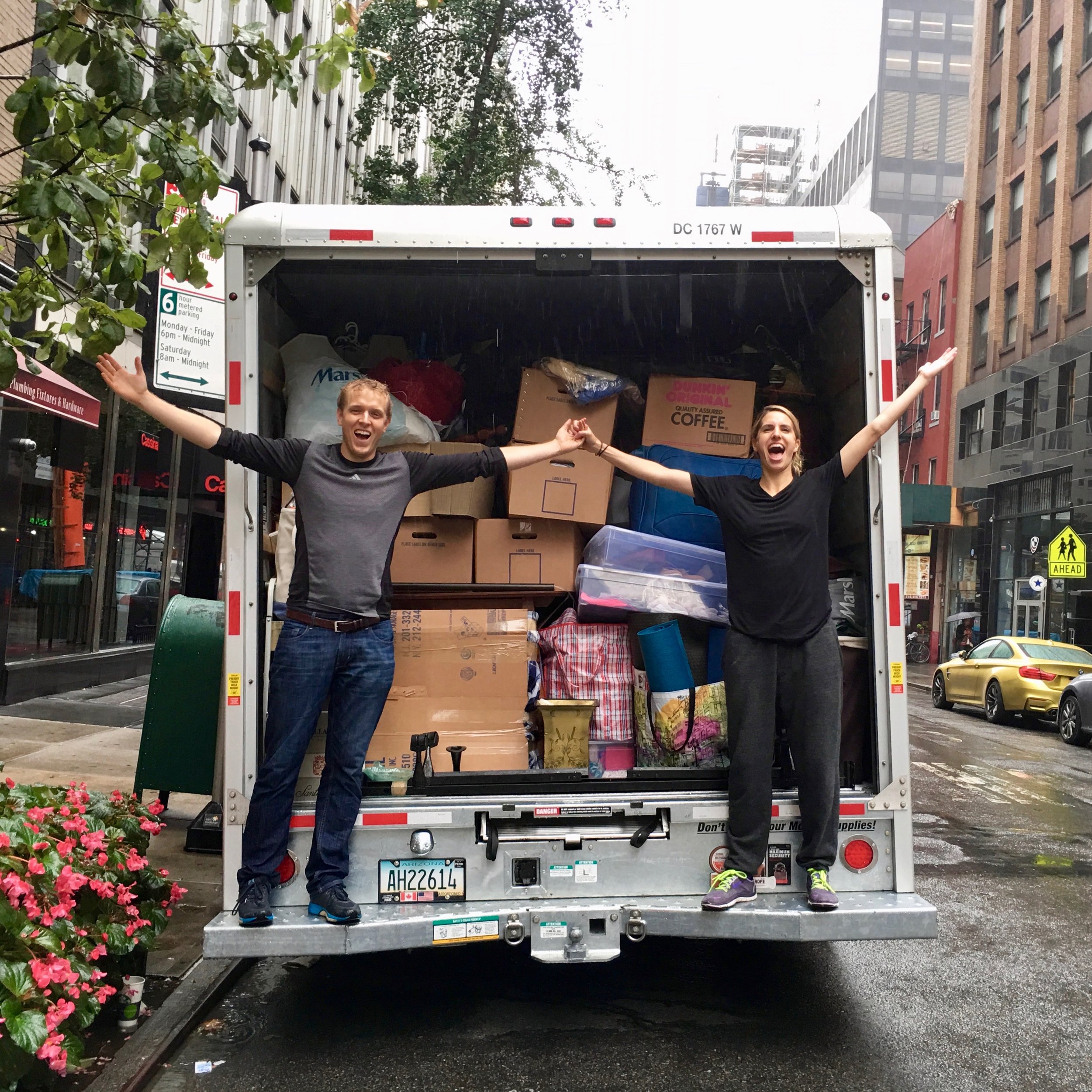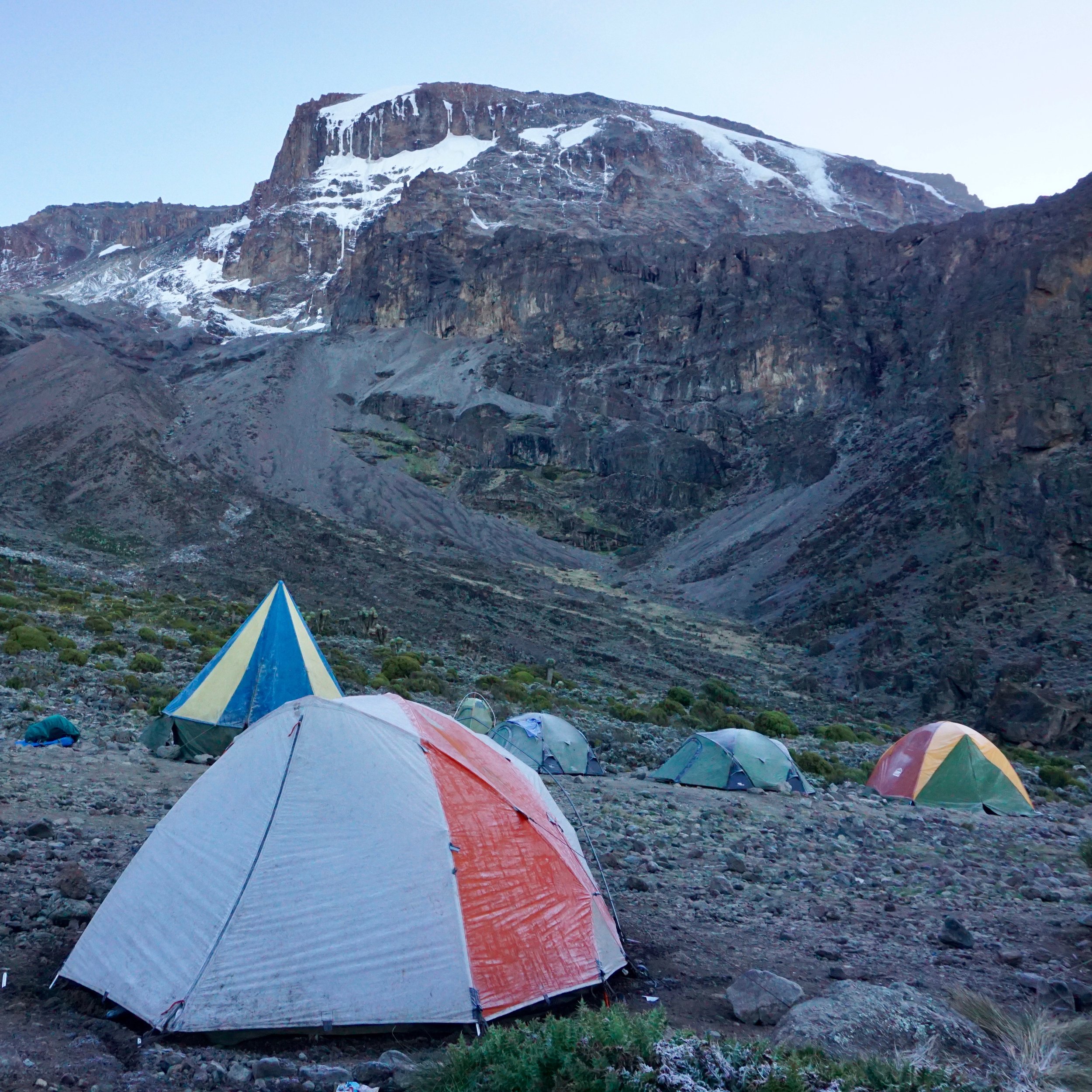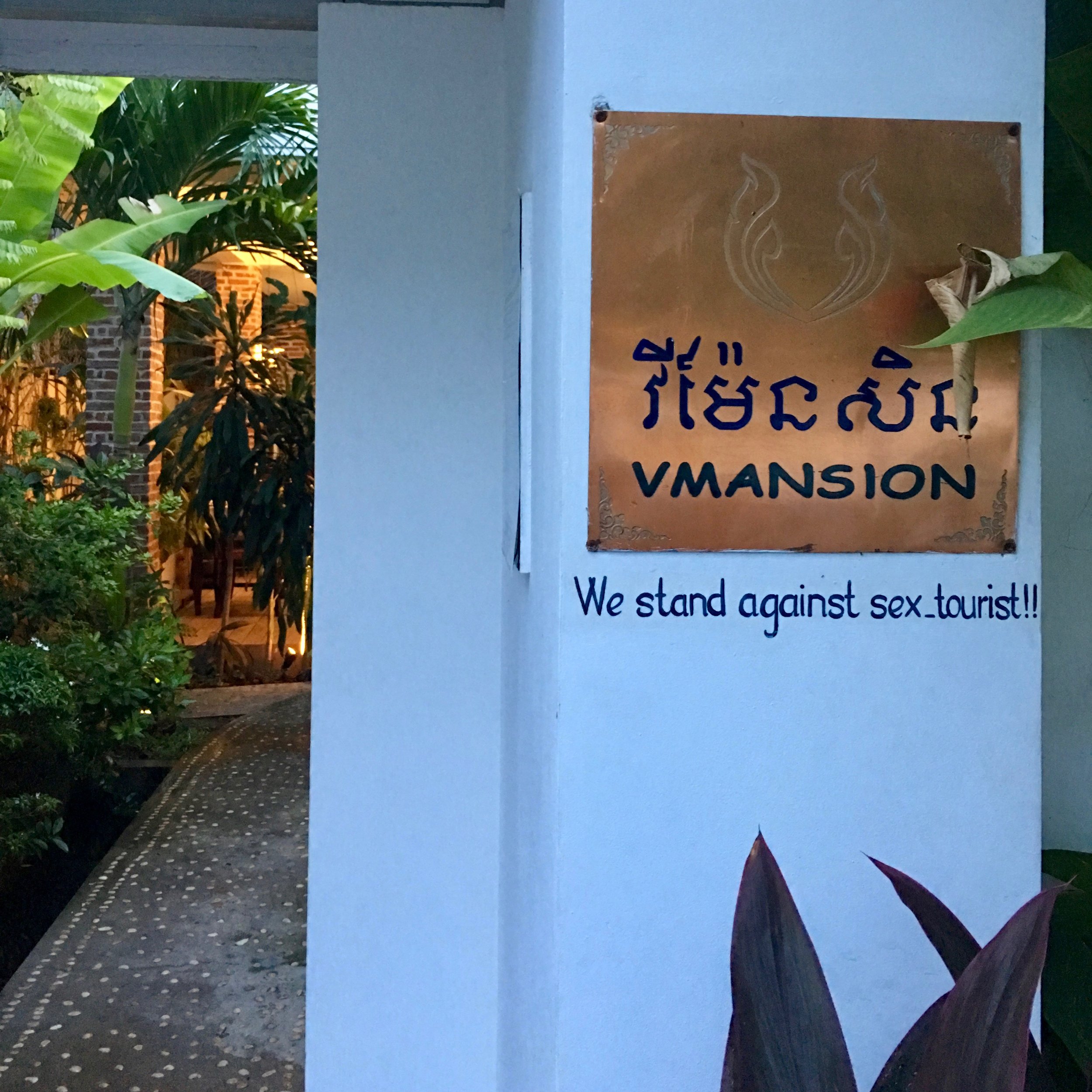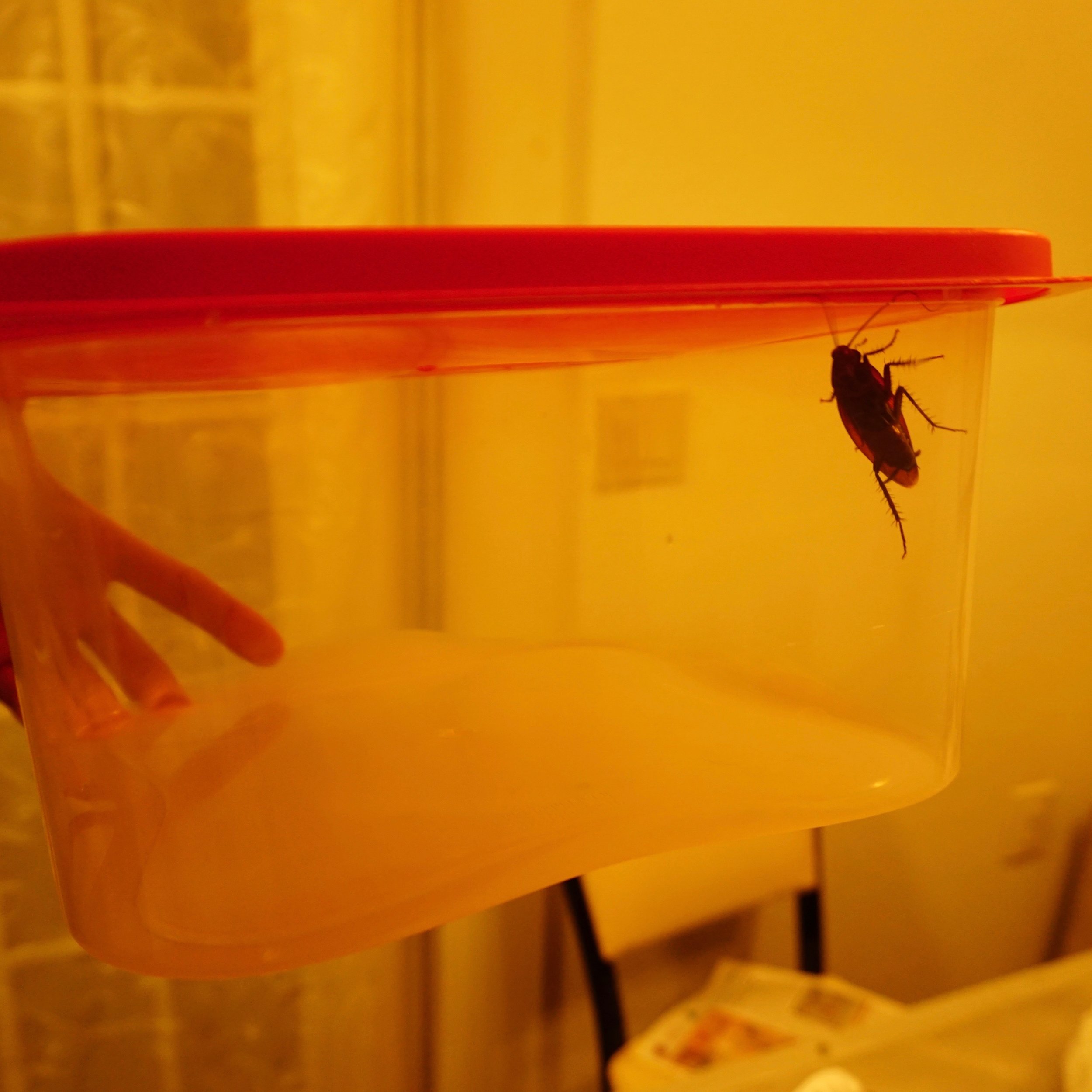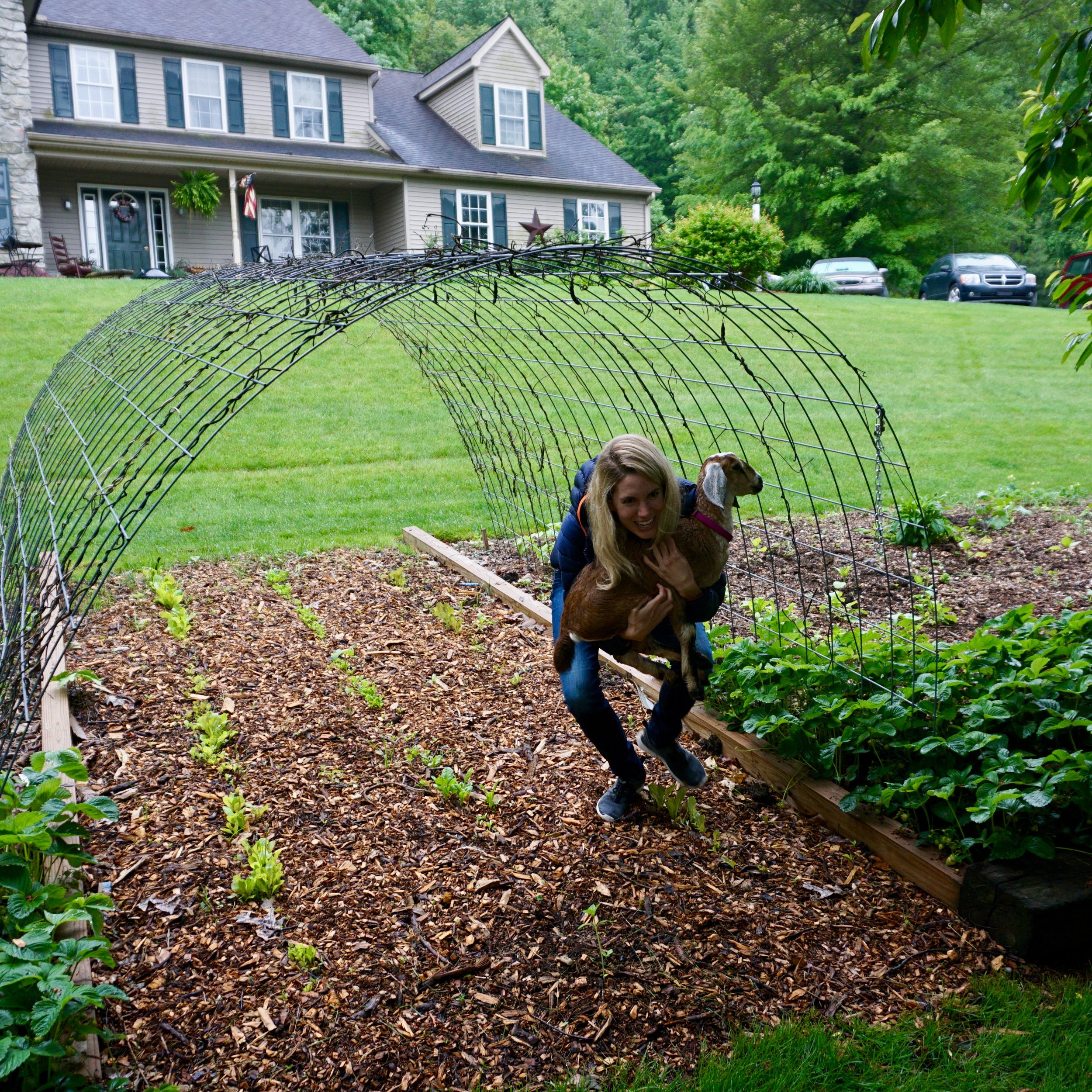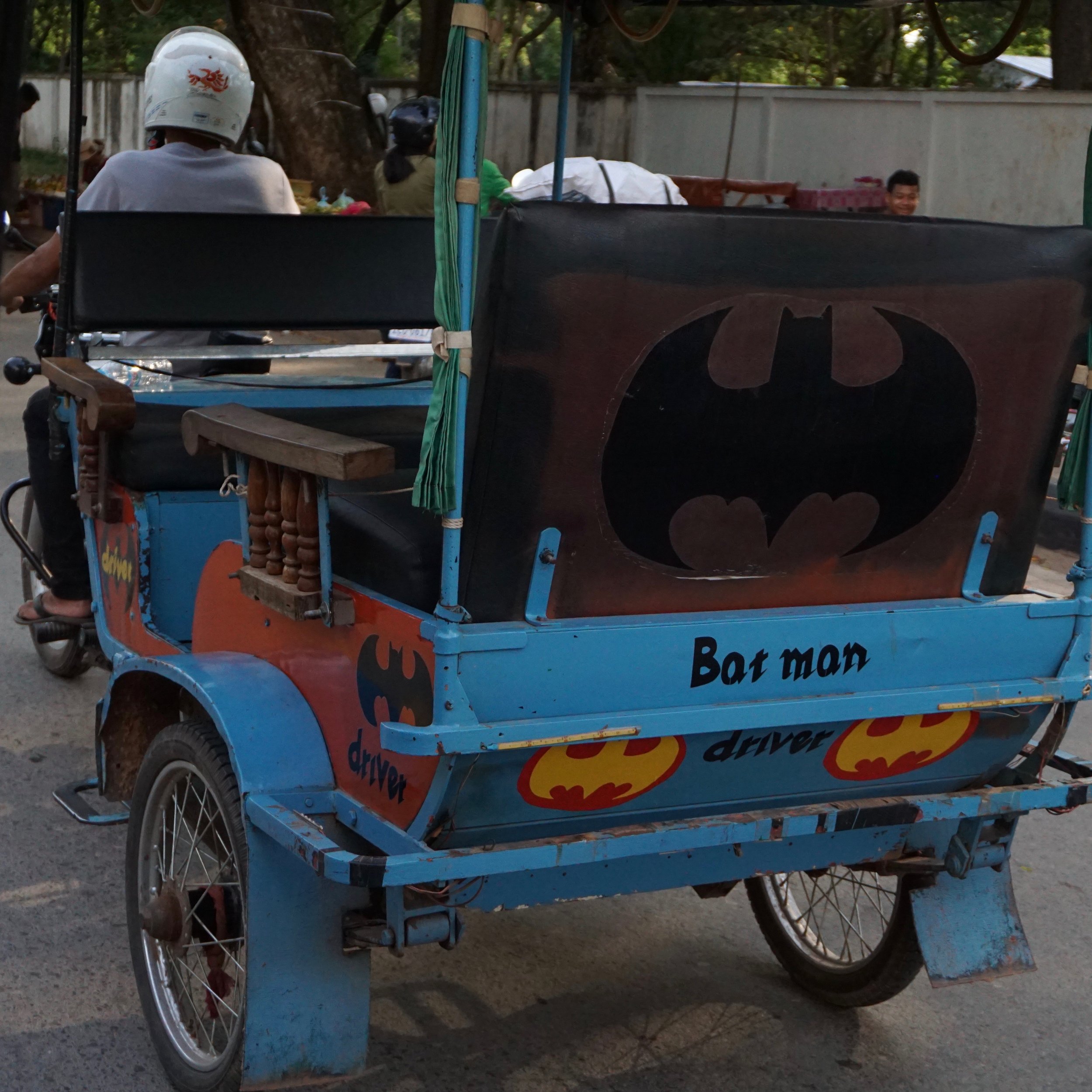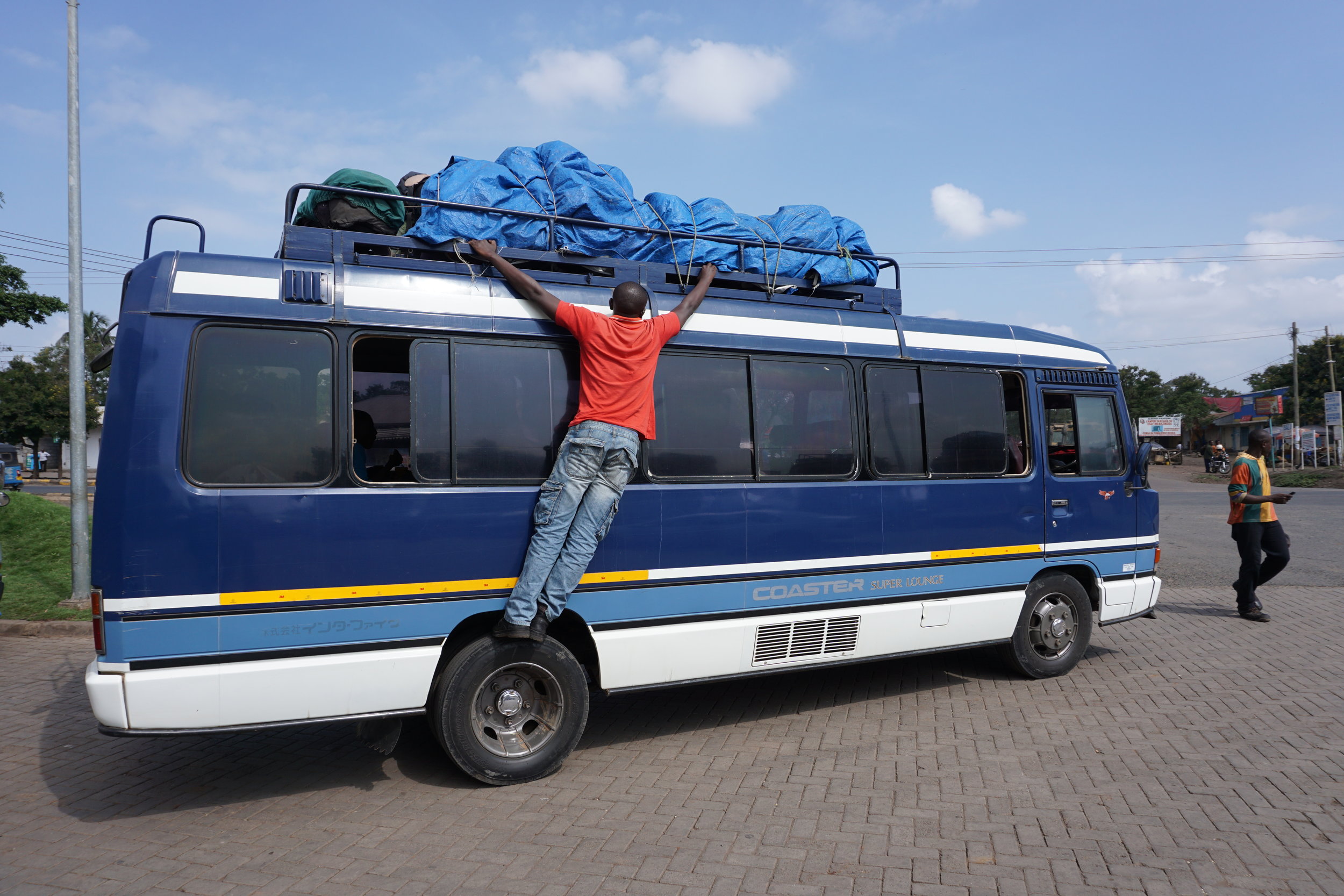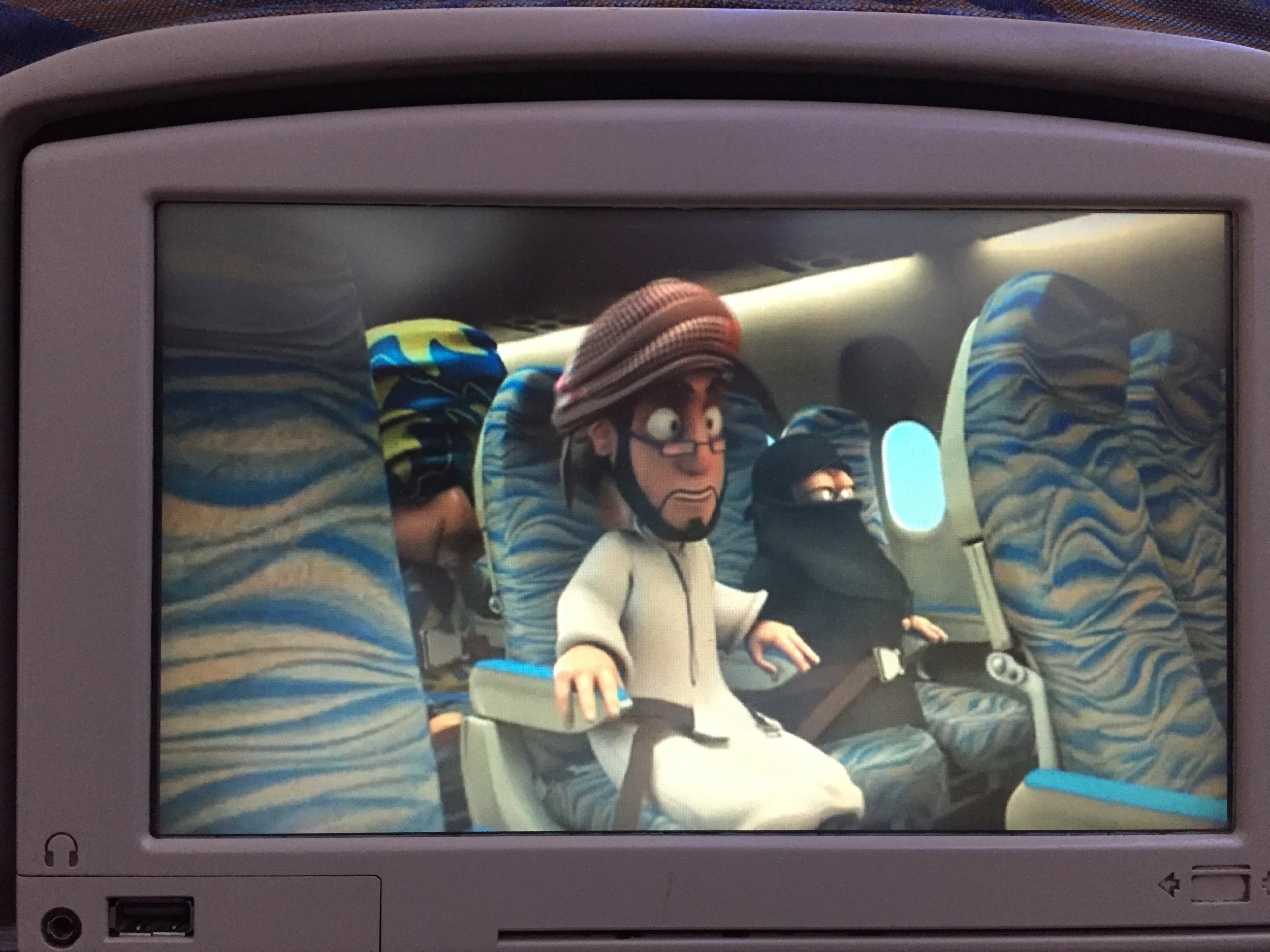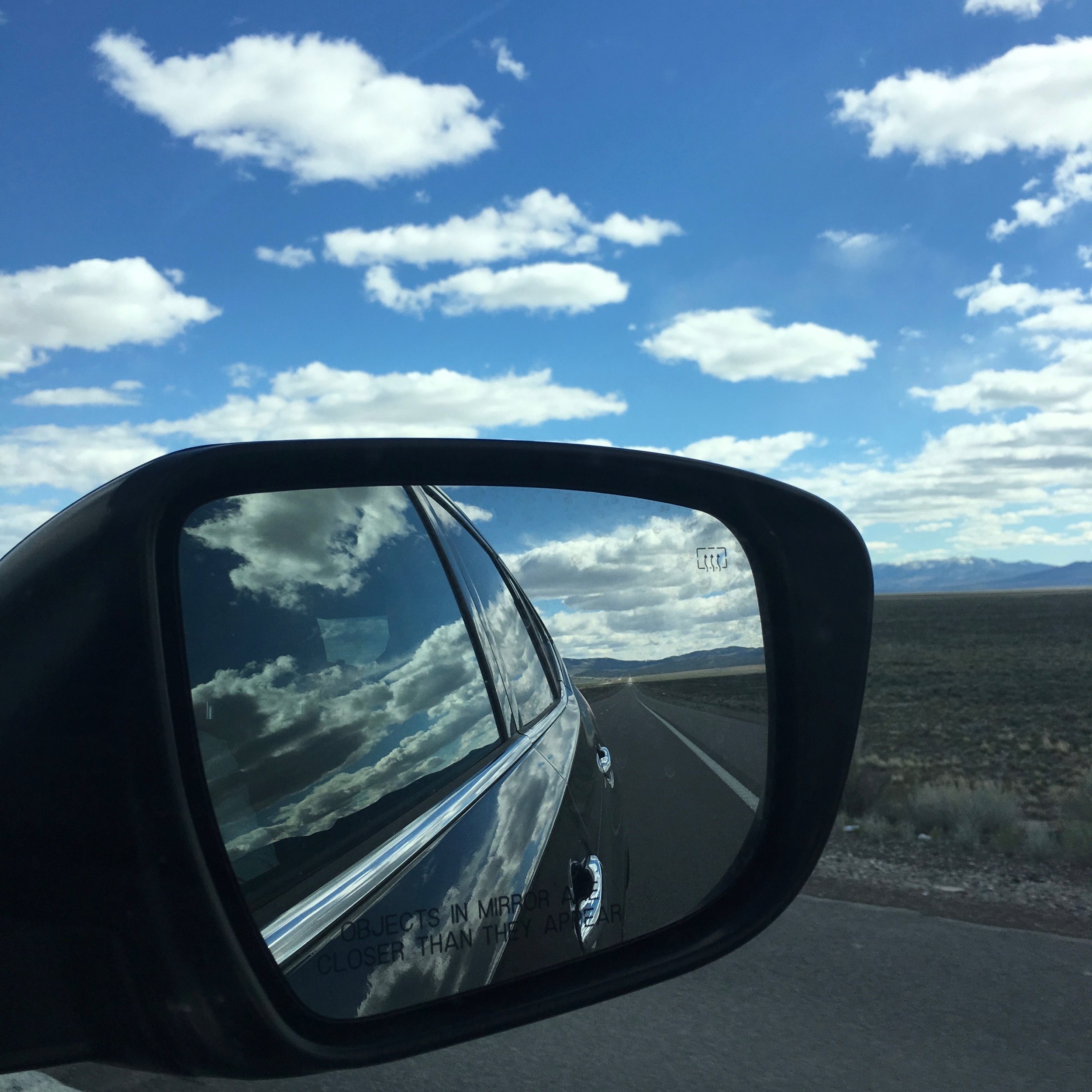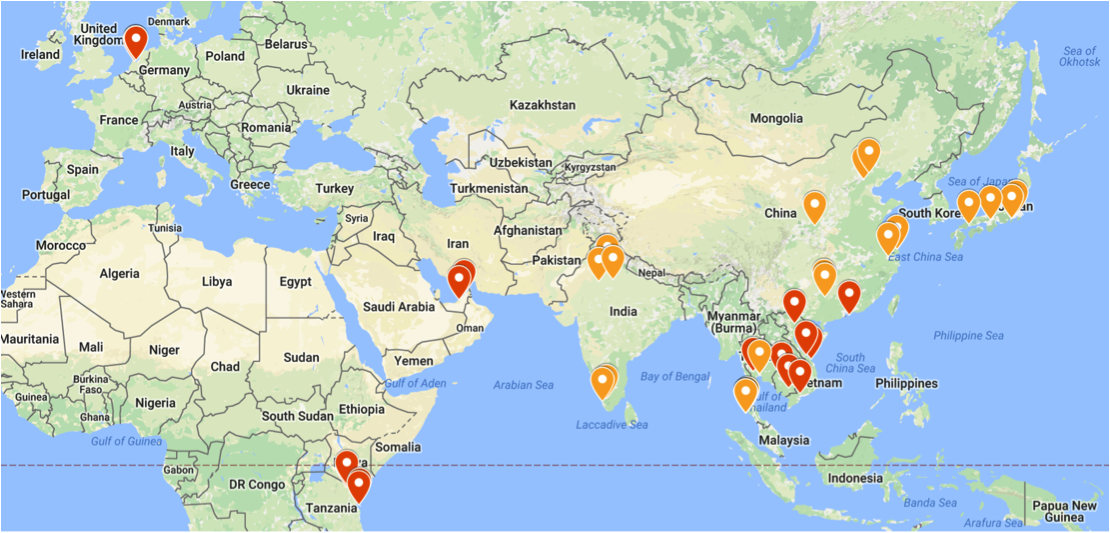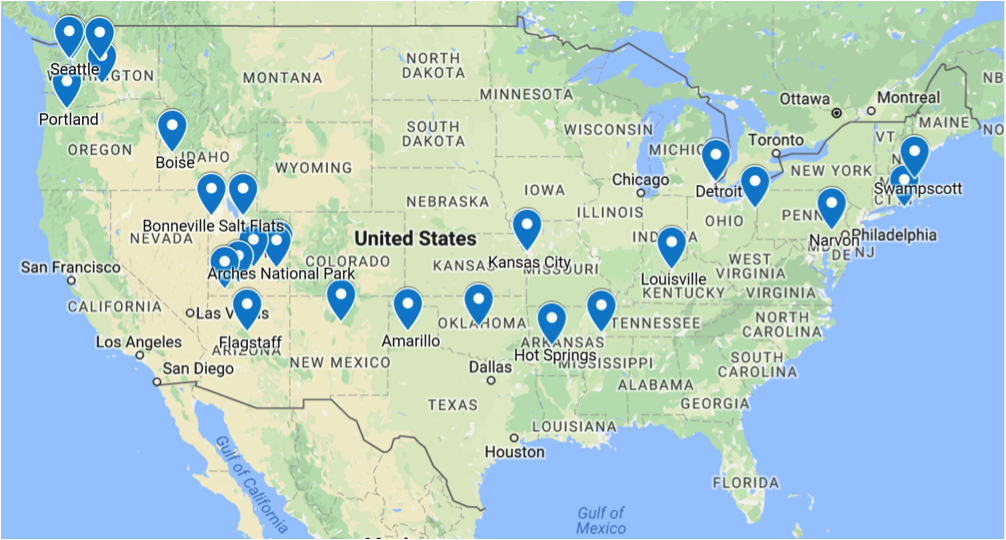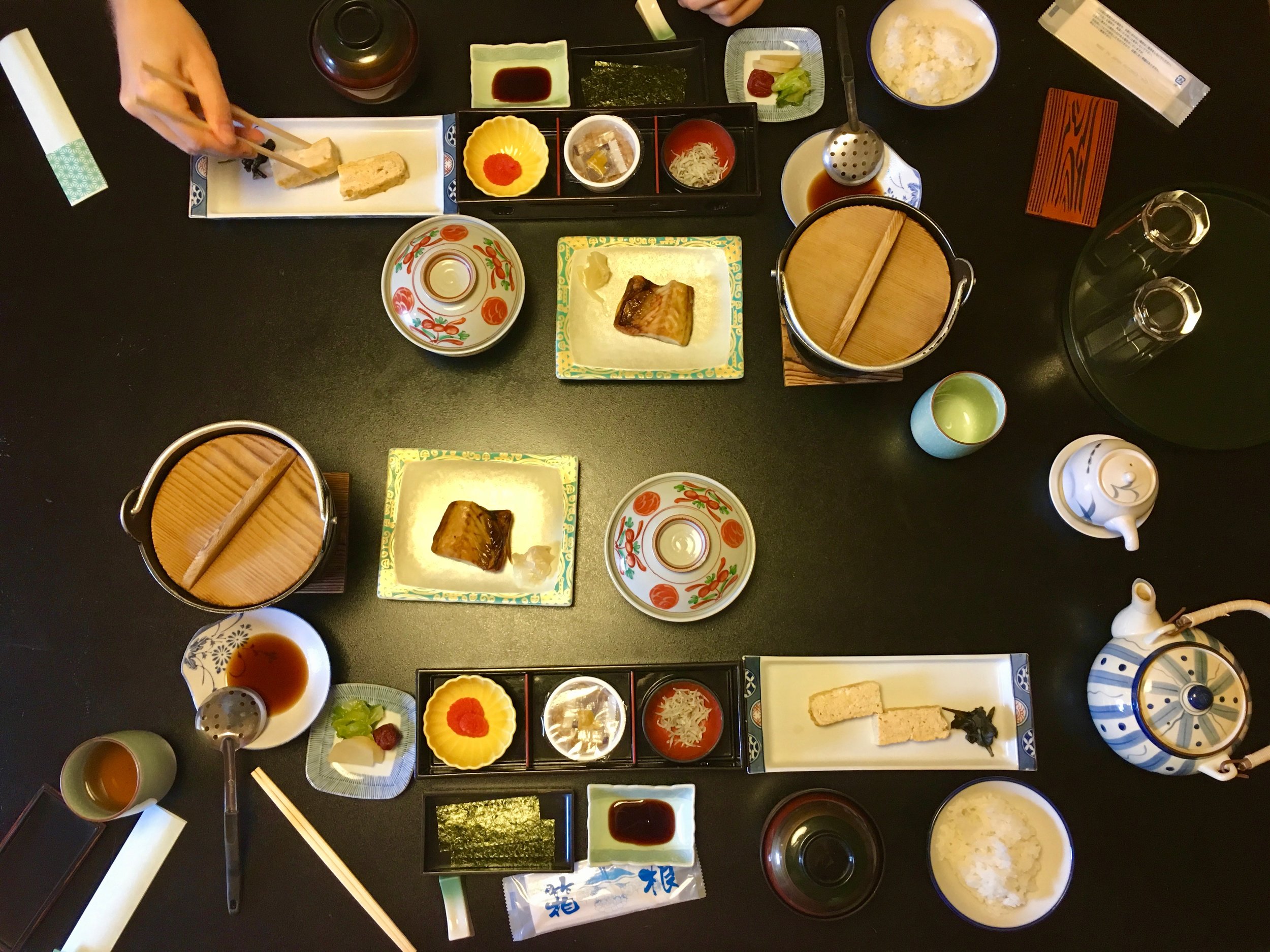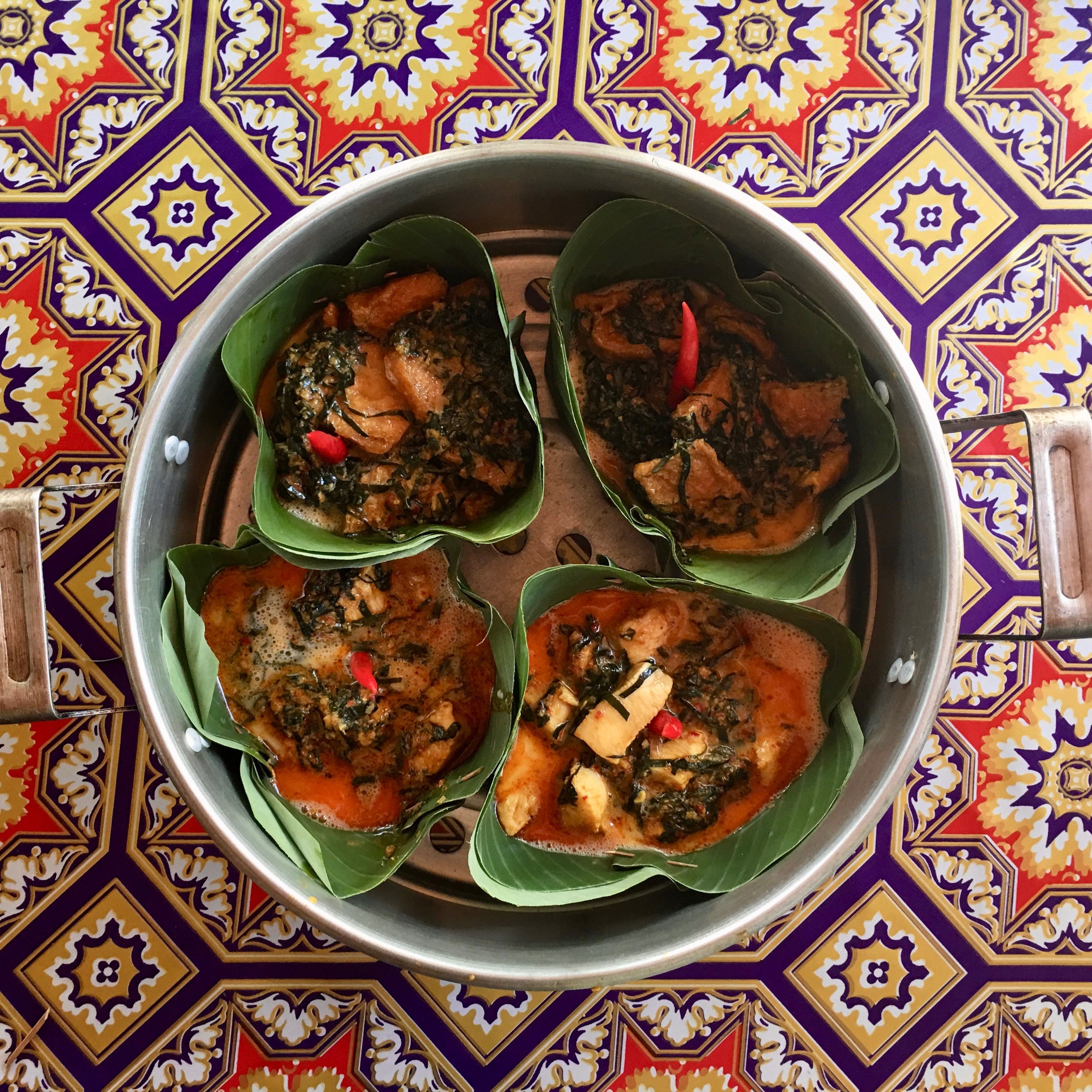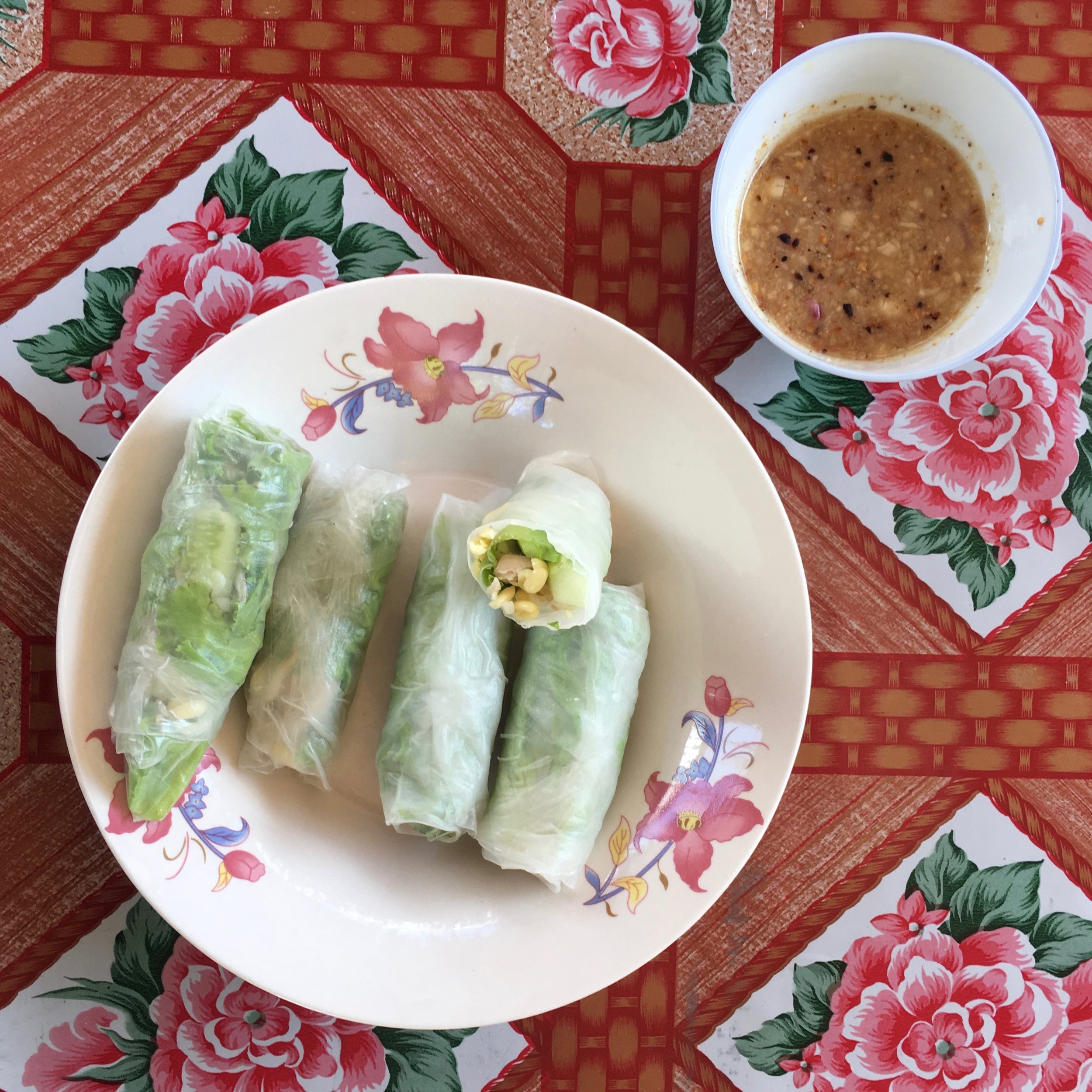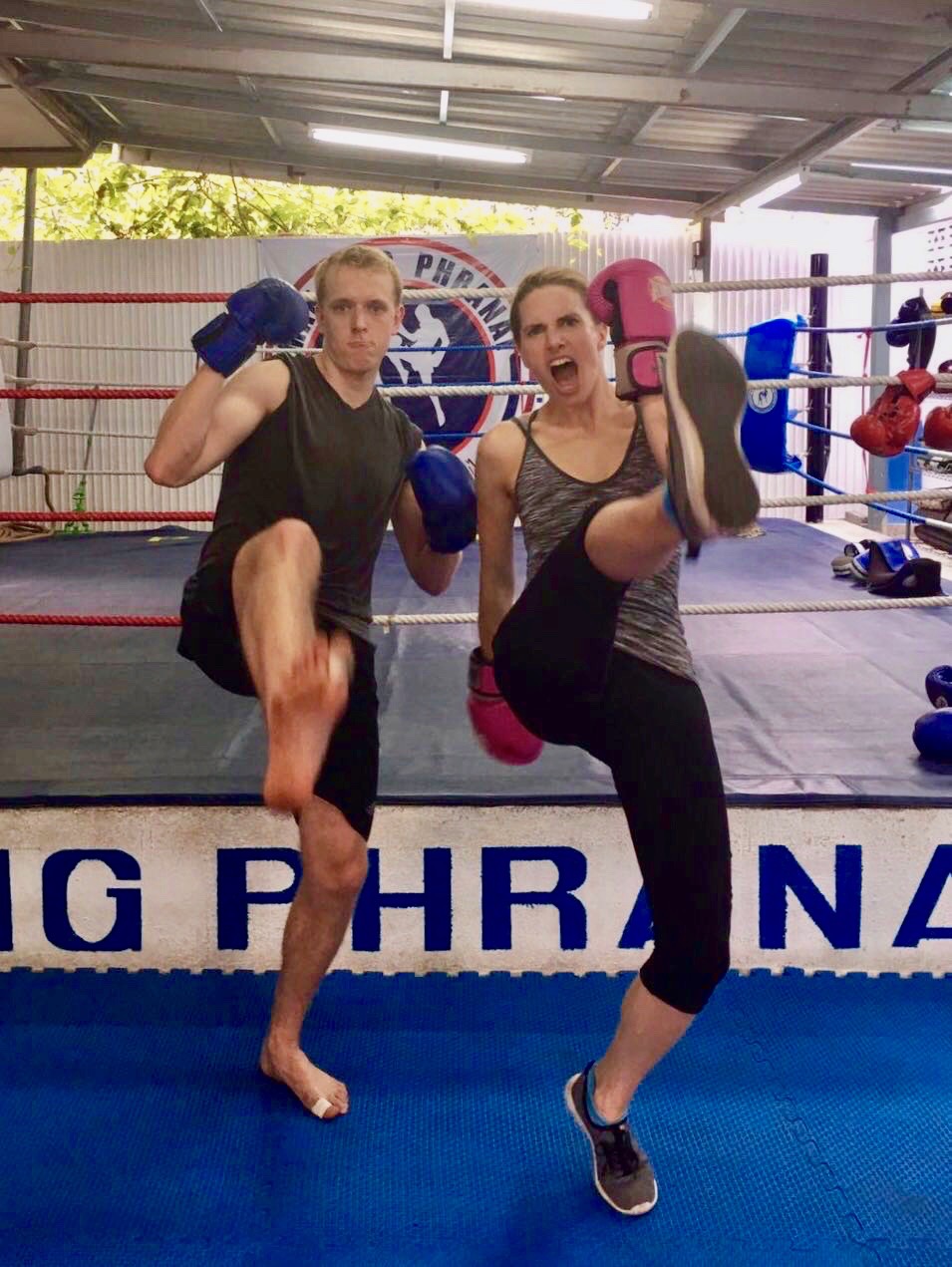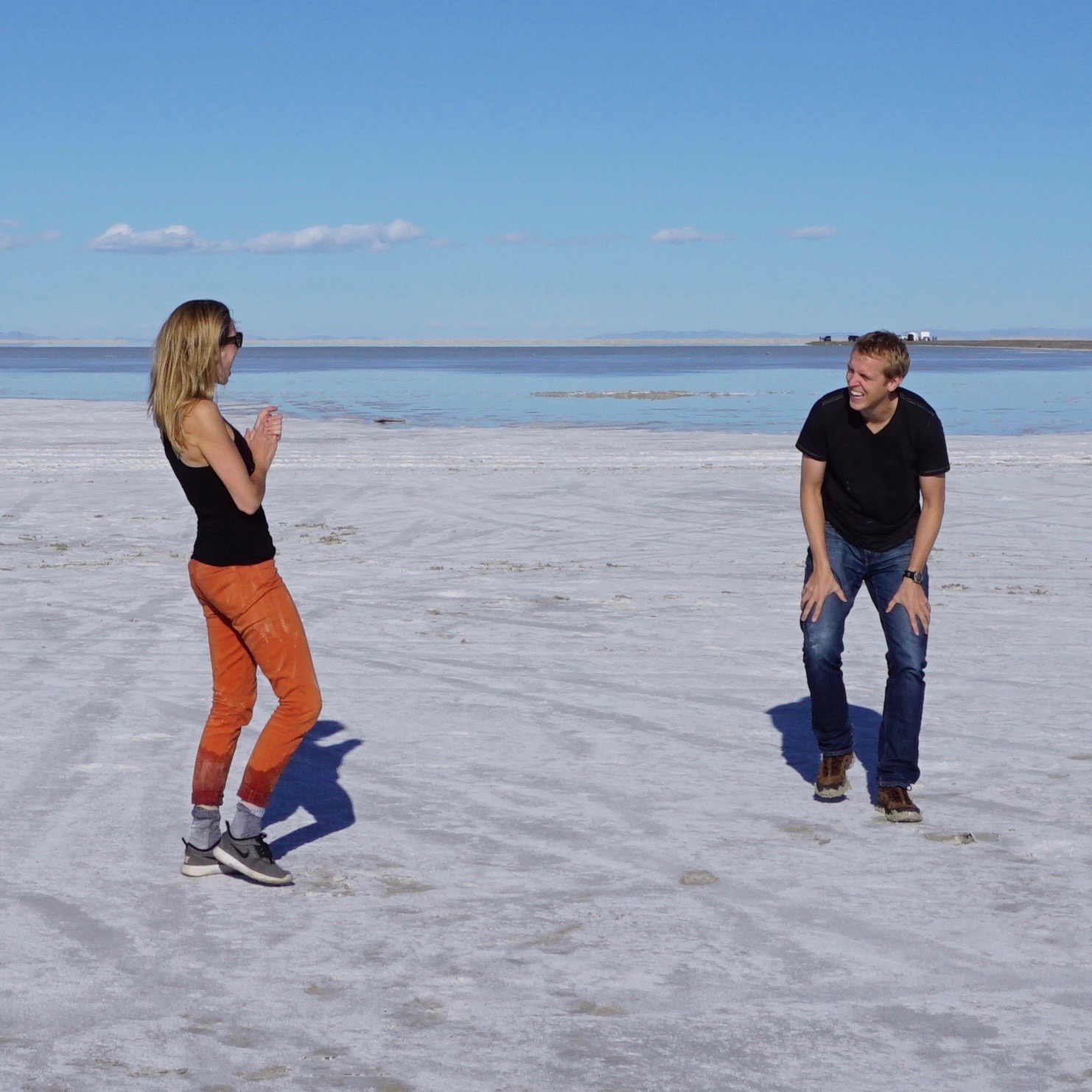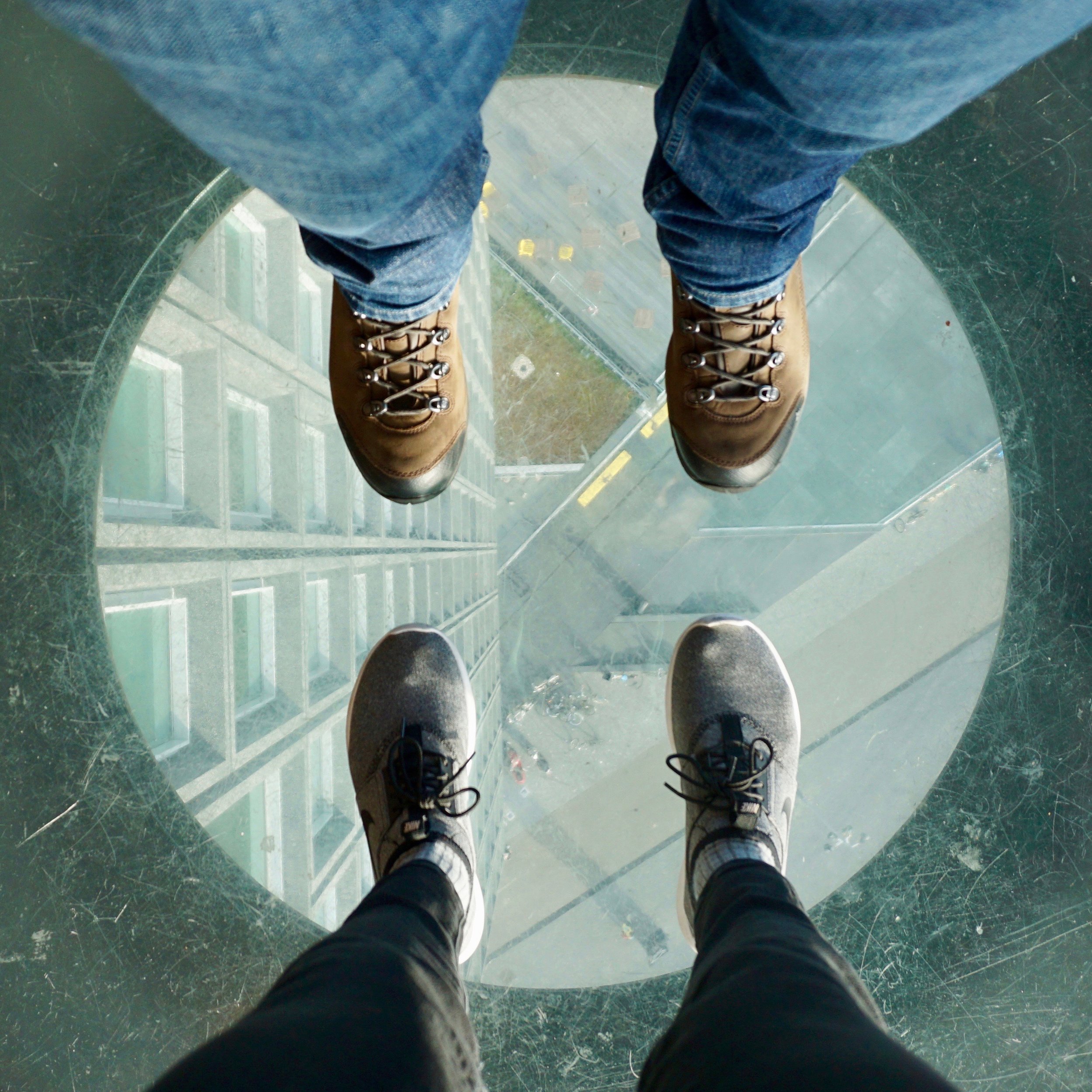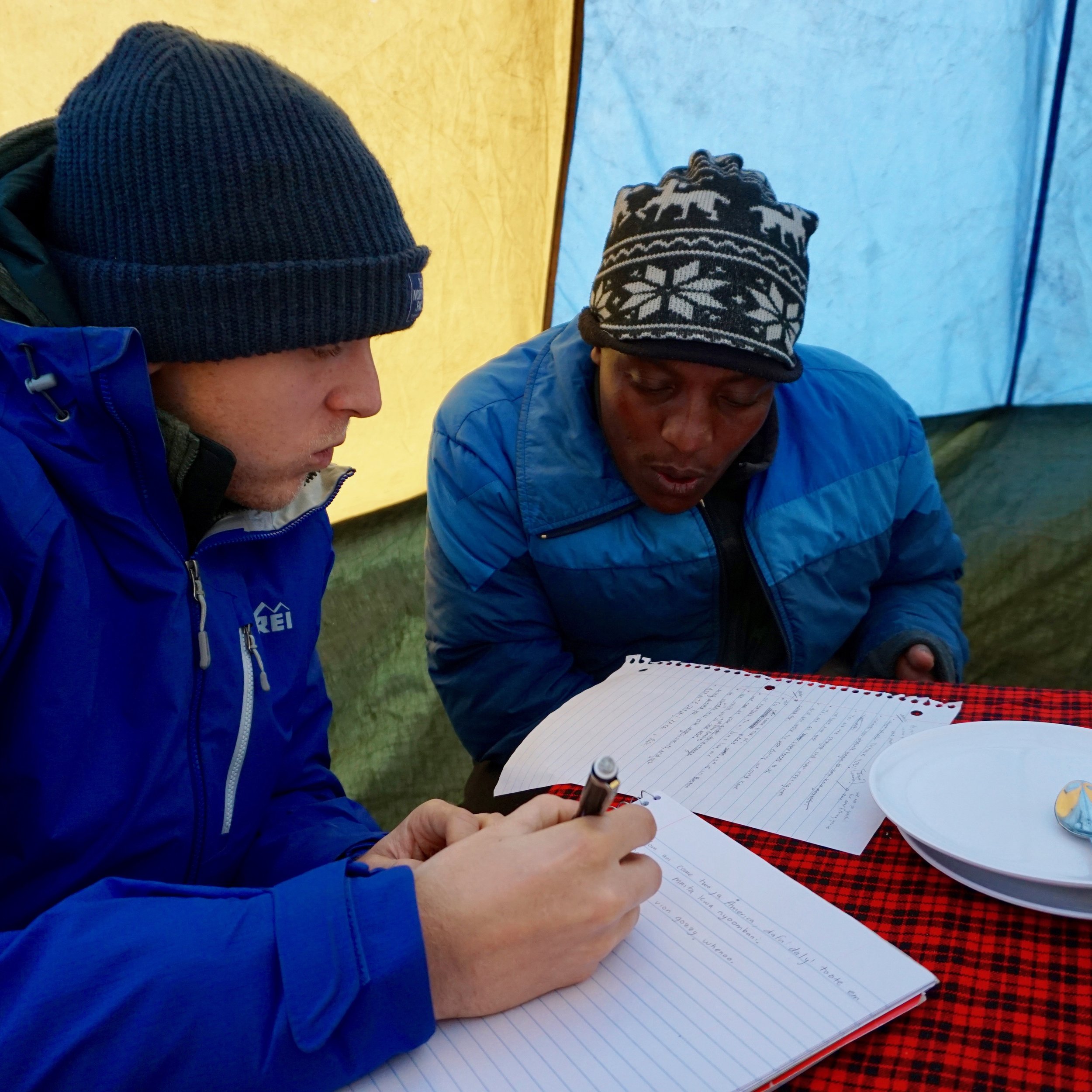QUESTIONS & ANSWERS
- What was your favorite place?
- How much did it cost?
- How did you pay for your travels?
- Why did you decide to travel?
- How has the trip changed you?
- Where did you stay?
- How did you get around?
- How did you plan your trip?
- Did you get sick, robbed, etc?
- Was it hard to travel together?
- What are opinions of Americans?
- Were language barriers ever a problem?
- What were your favorite books, podcasts, or movies?
What was your favorite place?
This is usually the first question we get. And we hate giving a lame answer like, "Oh, we can't choose, they're all so different." So we'll try to do better than that.
We went to a lot of cool places, but Kilimanjaro was hands-down our favorite experience. Amsterdam and Bangkok seemed like places where we could live long-term. China and Vietnam were very intellectually stimulating. And Cambodia had the nicest people (I know what you're thinking - how can you compare an entire country's population to all other people in every other nation? You can't, but Cambodia still had the nicest people). So yes, every place was special. But Kilimanjaro takes the cake.
Immediately below, we share snapshots of our favorite people, views, and man-made wonders.
The People
The best part of any place is the people. We generally make it our first priority to meet locals and/or other travelers. Here are just a few of the many people that made our journey special.
- Our local Kilimanjaro team with Kili-Treks who helped us reach the summit
- Our local Muay Thai trainers in Bangkok whose smiles kept us coming back for more bruises
- Our candid guide in Hangzhou who answered any and all questions without hesitation
The Views
Our planet offers amazing views that are impossible to rank or even compare. Here are a few of our favorites.
- The sunrise from the top of a snow-topped Kilimanjaro
- My gorgeous fiancée backdropped by Zanzibari dhows in the Indian Ocean
- 360 degree views from trailheads in Utah's National Parks
The Manmade Wonders
Mankind has built some mind-blowingly beautiful things. The incredible attention to detail left our jaws on the ground over and over again.
- The Great Wall of China snaking along ridge lines as far as the eye can see
- The smog lifting to reveal the Taj Mahal in Agra
- The sun setting over the Sheikh Zayed Mosque in Abu Dhabi
How much did it cost?
$53,105 for both of us (or about $26,553 per person).
If we had to categorize ourselves on a spectrum from Budget Travelers to Luxury Travelers, we were somewhere in the middle. When we saw something that we wanted to do, we went for it. We routinely spent a bit extra for services that we hoped would allow us to see and do more than we could on our own (i.e., a trekking company to go up Kilimanjaro, a Chinese speaking tour guide, etc). We also didn't want to spend every minute of our spare time planning. For example, we're confident that our tour company in China allowed us to see 5x what we could have done on our own, and they brought us to better places. On the other hand, we always searched out the cheapest transport options, reasonable accommodations, and meals for under $10 (note: in some places, it was vastly less than this).
We'll try to give you an idea of where our money went. Please note that the following two challenges have impacted our figures. First, we used rewards points for some flights and accommodations. Second, we didn't keep an itemized log of the cash we spent (it represented about 12% of our total budget and was spent on all sorts of things). We hope these lists give you a feel, but read them with a grain of salt.
Our biggest costs categories (for 2 people):
- Tour Companies - $16,200 (e.g., Kilimanjaro Trek, China Tour, Day Excursions, etc)
- Accommodations - $9,500 (e.g., boutique hotels, hostels, and Airbnb)
- Airfare - $8,400 (note: cheapest flights we could find)
Our largest single expenditures (for 2 people) were:
- Tour of China with China Highlights (3 weeks) - $6,100
- Kilimanjaro Climb through Kili-Treks - $5,000
- Flights from Boston to Kilimanjaro - $1,900
- Rental car for 5 weeks in USA - $1,700
- India Golden Triangle Tour (4 days) - $1,500
Some of our biggest steals:
- Rental car for 5 weeks in USA was $46/day including insurance.
- Paying for almost 5 straight weeks in Africa and Southeast Asia with rewards points only!
- Splitting every room between 2 people definitely helped!
- Airbnb in USA. We stayed in great places for 1/3 the price of major hotel chains.
- We booked some flights with multi-day layovers (i.e., Amsterdam and Dubai)
What payment methods did we use? To optimize reward points, we managed expenses by putting all costs on a set hierarchy of cards (see below). We always sought to use credit cards unless that option wasn’t available.
- Chase Sapphire Reserve Card
- Starwood Preferred Guest Card
- Jetblue Mosaic Card
- Schwab Debit Cart – no ATM fee withdrawals
- Chase Debit Card – only for emergencies
- Cash
We relied on two cards almost exclusively: 1) the Chase Sapphire Reserve Credit Card (for purchases) since we found they had the best points system and 2) our Schwab Debit Card (for cash withdrawals) since they do not charge ATM fees or international transaction fees (these will add up over time).
If you are more interested in the financials, we have tons of information and guidance. Feel free to contact us!
How did you pay for your travels?
We paid out of our own savings. We kept a general budget in mind, but we weren't Draconian in enforcing a daily per diem or passing up great opportunities for cost reasons. Watching our bank accounts shrink was an experience in itself, but it helped us savor each day that much more.
Why did we decide to travel?
For some people, this may sound like a stupid question. But we challenged ourselves to think about it, even before we began, because we felt like we needed to justify our decision. Not just for other people. In fact, it was more so for ourselves. We wondered a whole lot of things: Are we selfish? Are we irresponsible? Are we crazy? Will we ever be able to find jobs again? Are we destroying our careers? Shouldn’t we be saving our money? Shouldn’t we be putting it into a down payment for a home or save it for kids, family, and retirement? And the answer to all of these questions was… yeah, maybe…
We ultimately decided that the only reason we needed was this: Because we’d been dreaming about it… for years. And it had become more and more apparent to both of us that this dream wasn’t going to happen, unless we made it happen. We recognized that there was never going to be a perfect time to have this adventure (from a career, family, or money perspective)… and when we were honest with ourselves, we realized that right now was the best time we could ever hope for. At the end of 2015, we recognized that we were probably as “free” as we’d ever be from a practical standpoint… Of course, a philosopher might argue that perhaps we are only as “free” as we let ourselves be. Either way, we figured whether we die at 35 or 85, we won’t look back and regret this decision. So we went for it and we haven’t looked back yet.
How has the trip changed you?
Our travels didn't trigger any fundamental alterations in our personalities or character. We didn't have a momentous epiphany about how we want to spend the rest of our lives. And we definitely didn't decide to drop everything and move to a beach in Thailand (although we can totally see why people do that).
We did change in some ways though. For both of us, it became even more apparent that the world is rarely black and white - despite how tempting it is to build perspectives in that way. Our travels broadened our appreciation for the diversity of people, lifestyles, and opinions that co-exist within humanity.
We expanded our viewpoints on some topics. For instance... prostitution is a complicated subject matter, but we have a better understanding around what governments are trying to do by decriminalizing it. Our involvement in Vietnam wasn't a battle of good vs evil. Sumo wrestlers are incredible athletes. Views on Trump are just as divided abroad as they are at home. Recent global history (we're talking from the 1900s onward) needs to be better taught in American schools - it shouldn't be left to the end of the school year. Governments need to do a hell of a lot more when it comes to working against pollution. The list goes on.
We improved in some ways too. We connected with people with a wider range of backgrounds and perspectives. We learned to listen more. We became more patient. We gained new levels of respect for people that we fundamentally disagree with. We more deeply understood that time is the ultimate resource. We recognized how lucky we are.
We learned more about ourselves. We learned that it's ok not to have a plan sometimes and that keeping an open mind is key. We were surprised to find how liberating it is to live out of a backpack - we need much less than we thought. We also recognized that we're not invincible (rushing to the hospital post Annie's bicycle accident)... AND at the same time, we're definitely not fragile (summiting Kilimanjaro in a truly wild night blizzard).
Where did you stay?
We mixed it up. Our median accommodation was the small boutique hotel, hostel, or Airbnb. Sometimes we needed to share a bathroom, but we always had our own room. We really ran the gamut... from 2-person tents in Africa... to a boarding house with worms on the floor in China .... to a studio apartment in Amsterdam... to a beautiful 5-star hotel in Agra. What we were really looking for was a clean bed at a reasonable price. We also tried to alternate in that after we stayed at a less nice place (or several less nice places), we might try to upgrade for our next spot.
How did you get around?
Any way we could! We loved riding public transportation because it made us feel like we were locals. Here is a sample of how we got around...
- More than 30 different airplanes
- The Shinkansen in Tokyo
- Taxis in China
- A rental car across the the United States
- A public bus to Hakone
- In the back of an official Post Office Mail Van in Cambodia
- Tuk-tuks in Delhi, Siem Reap, and Bangkok
- Motorbikes along Vietnam's coast
- An overnight high speed train to Shanghai
- A Tesla in Hong Kong (thanks Uber!)
- A horse drawn buggy in Amish country
- A new friend's minivan in Moshi
- Very clean cabs in Dubai
How did you plan your trip?
We started with the mission of only exploring places that we'd never been to prior. We put together a high-level itinerary based on the countries we wanted to visit. At the beginning, we packed our excel spreadsheet with a prioritized list of activities. Towards the end, we were asking locals and booking day-of accommodations.
We didn't carry around any guidebooks, because they would have been too heavy. Over time, we became less and less interested in seeing temples and churches. We typically used google to bounce around to all sorts of different blogs that offered information and tips on the places that we were visiting. The one blog that we read most frequently was Nomadic Matt. We found that we often agreed with his advice and impressions of locations. Our favorite things became just walking around with general destinations in mind, but not being afraid to stray from the initial plan.
Did you get sick, robbed, etc?
No.
We steered clear of any very weird food and preferred to have our adventures elsewhere. We usually asked around for the best places to eat and generally sought out spots where the food was turning over.
When possible, we locked our valuables in the hostel or hotel safe. Annie's laptop became our most prized possession (outside of ourselves) because it housed our pictures and notes, which meant that when we thought a place was "iffy," we'd bring her laptop with us.
Was it hard to travel together?
For 10 months, we were very rarely more than 10 yards apart from each other. We get lots of questions about how this went. We've heard plenty of horror stories about couples who have driven each other insane in that proximity for such an extended period. We'll answer this one separately:
ANNIE:
Traveling is really fun, but it's made even better with a partner. I am so grateful to have Adam by my side. This wasn't our first big trip together, but it was our most extended one. We balanced the other out and we stayed open-minded. We both had working cell phones (which really helped when we went to do things separately), but the biggest thing is that we talked a lot. About everything.
ADAM:
I doubt life gets much better than traveling around the world with a beautiful woman who is also your best friend. We had it easy because, in the vast majority of cases, we agreed on the activities we wanted to do. In terms of differentiation, I tend to gravitate more toward historical sites (particularly WWII sites), whereas Annie loves to be in the center of what's happening now. She indulged me on a ton of occasions, and I'm incredibly thankful for that.
Some of my favorite memories were debating the loads of topics we encountered along the way. Sometimes the debates got heated and we needed some time to cool off. I could count on one hand how many times this happened in 10 months. Arguments never lasted more than a few hours, and despite dating for 8 years, our communication has only improved.
What are opinions of Americans?
In 90% of introductions, we said that we were from the USA. In more isolated and remote areas with individuals that we felt less comfortable around, we sometimes said that we were from Canada. Hey, it's close. And everybody loves Canadians.
We never experienced specific animosity towards us because we were Americans. One man in Ho Chi Minh City raised his voice at us when we disagreed with his claim that "Donald Trump is a godsend" because "he will be issuing stipends to Vietnamese war veterans living in Saigon"... still not sure why he thought this would happen. But overall, we generally felt relatively positive energy towards the United States.
It was interesting to be abroad while the US elections were going on. We voted before we left. We lived in a bubble and were convinced that Clinton would win. We were wrong and everyone that we met had an opinion on the results. As in the US, these viewpoints are deeply divided. We met more people than we were expecting that were excited to see Donald Trump as President; however, we also met a relatively equal number of people while traveling that viewed him as a complete joke and the embodiment of all that's wrong in America.
It's also worth noting that most people we met had never visited the US before and wished they could. A number of them had applied for visas multiple times and couldn't obtain one. It made us feel fortunate to be visiting their country when it seemed that they weren't granted the same freedom to visit ours.
Were language barriers a problem?
There are 2 categories: China and everywhere else. In China, we would have struggled to get around without English-speaking guides (Shanghai is an exception - we got around this city without a guide). In every other country that we visited, we busted out charades every once in awhile, but English was at least sufficient enough to find restaurants, food, and other local sites. There were times when the language barrier prohibited deeper conversations, but it's tough for us to complain given we're the dimwits that only speak English fluently.
What were your favorite books, podcasts, or movies?
Top 5 Books
- Shantaram. By Gregory Roberts. A convicted Australian bank robber escapes prison and flees to India, where he rises through Bombay's gang world. Despite being a fiction, it is largely based on Gregory Roberts' own life.
- The Sympathizer. By Viet Thanh Nguyen. Pulitzer Prize Fiction following the story of a North Vietnamese mole in the South Vietnamese Army, beginning at the fall of Saigon.
- Black Flags: The Rise of ISIS. By Joby Warrick. Pulitzer Price General Nonfiction tracing the rise and spread of militant Islam behind ISIS.
- The Unwinding: An Inner History of the New America. By George Packer. Vivid collection of American biographies illustrating important forces in the USA from 1978-2012.
- The Curious Incident of the Dog in the Night Time. By Mark Haddon. A mystery novel portraying the experience of viewing the world differently, as an outsider.
Top 3 Podcasts
- S-Town. Hosted by Brian Reed. A man named John B. suspects a murder has taken place in his Alabama town and decides to do something about it. A beautiful story with plenty of twists and turns.
- Serial: Seasons 1 & 2. Hosted by Sarah Koenig. Fascinating investigative journalism that exposes how challenging it is to find "the truth." Season 1 covers a murder mystery and the trial of Adnan Syed. Season 2 discusses the high-profile desertion case of Bowe Bergdahl.
- Blueprint for Armageddon. Hosted by Dan Carlin. A 20-hour narrative summary of WWI delivered with expert depth and clarity. It is a worldview alterer.
Favorite Movies
- Everest. Based on real events of the 1996 Everest Adventure, which reminded us of huddling behind a huge rock to avoid the blizzard on Kilimanjaro.
- Lion. A very young boy accidentally takes a train that brings him thousands of miles away from his village in India. The story follows his journey as he tries to find his lost family.
